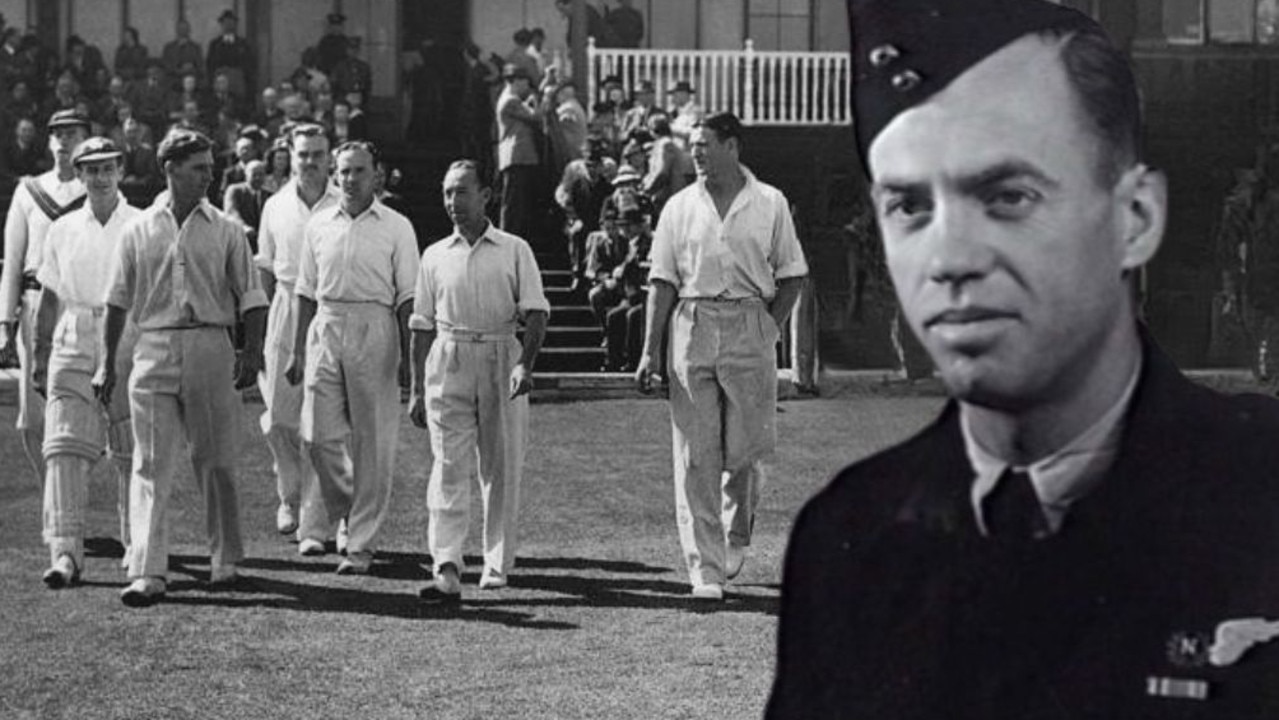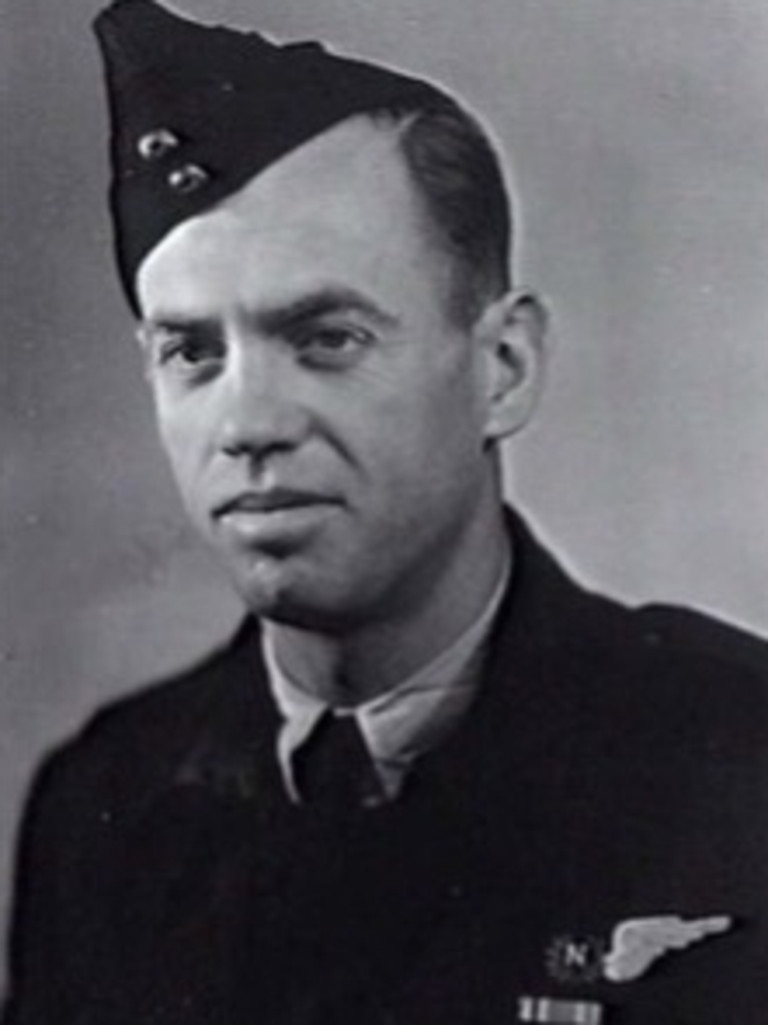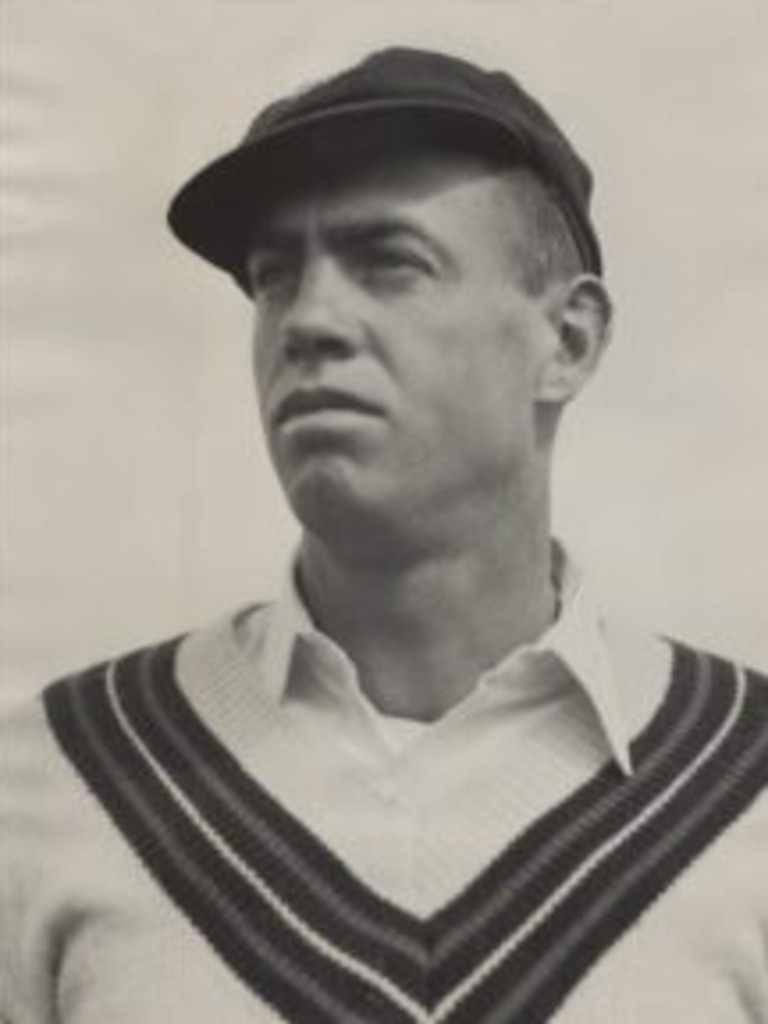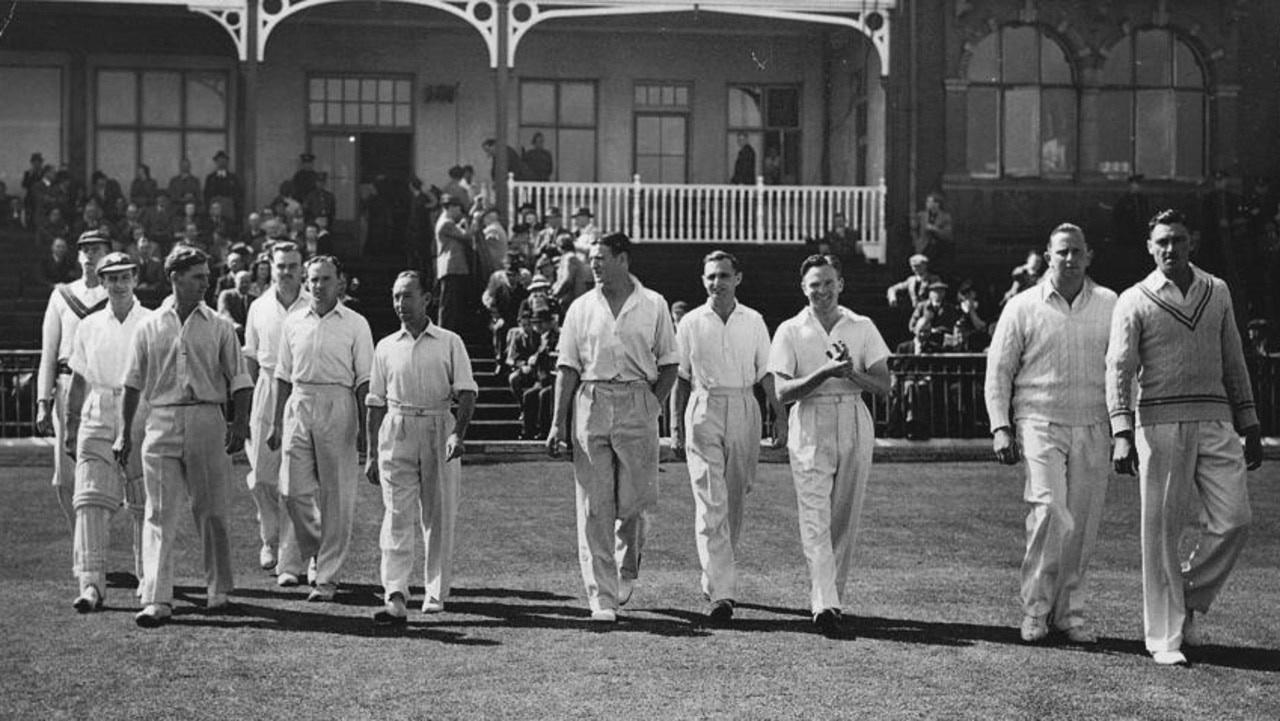Moment Australian cricketer was cheered by British fans after war
Anzac Graham Williams received an “orchestral” applause from English fans as he approached the wicket at the 1945 Victory tests, bringing tears to the eyes of star teammate Keith Miller

READING LEVEL: ORANGE
He was the greatest fast bowler you have never heard of.
His name was Graham Williams, a humble wool classer* from Adelaide who played 26 first class games. No Tests.
Williams was not great in a Glenn McGrath, Wasim Akram sense. Instead, he was great for producing one of the sweetest and most emotional moments in Australian cricket history.
The South Australian fast bowler was a last-minute addition in an Australian cricket team quickly pulled together for the Victory Tests against England – a series of cricket matches to celebrate the end of the Second World War in 1945.
But Williams was so thin people were worried about him simply falling over at the crease. Only two weeks earlier he had been released from a German prisoner of war* (POW) camp where he had spent four years on starvation rations* after being shot down in the Middle East and crash-landing about 70 miles behind enemy lines.


He had lost 31 kgs and weighed around 50 kgs. He was greyhound thin. But he played.
When he walked to the crease to bat at No. 9 at Lord’s* something strange happened. Hours before he batted, a profile of Williams appeared in The Times of London and Lord’s fans were so touched by it they applauded him all the way to the wicket.
Iconic* all-rounder Keith Miller* said the ovation was his most memorable moment in cricket. Of the thousands of photos taken of Miller, who was a famous cricket player at the time, featuring him with everyone from royalty to the riff raff, the only one he kept on show in his home in Sydney before he died was the one you see in this story (below) which has Williams partially obscured* on the far left.

“I can feel the hairs standing up on the back of my neck just talking about it,’’ said South Australian cricket coach Ryan Harris.
“It was amazing just the fact he (Williams) was out there but then to get that ovation. It’s a phenomenal story.
“Whenever I see something about our Diggers* – particularly our cricket Diggers – it just catches my attention. Just the thought of him bowling at around 50 kgs. Athletes are not even allowed to get that small these days. It’s a herculean* effort. Just an amazing story.’’

Miller, the not-out batsman when Williams walked out to make a rousing 57-ball 53, rated the ovation “the most touching thing I have ever seen or heard.’’
“It was almost orchestral* in its sound and feeling. Whenever I think of it, tears still come to my eyes,” Miller once told Richie Benaud.

During his time as prisoner of war Williams regularly communicated to the Red Cross to help other prisoners, learned braille* so he could teach it to blind prisoners and taught agriculture and touch typing.
After the war, Williams quietly returned to Adelaide and his job as a wool classer and died at age 67, one of many utterly heroic Anzacs who never got the publicity* they deserved.
POLL
GLOSSARY
- wool classer: someone who sorts wool into different grades depending on its characteristics
- prisoner of war: a member of the armed forces or a civilian of interest who is captured and held against their will by the enemy during a war or conflict
- starvation rations: only given a small amount of food, not enough to remain healthy and nourished with
- Lord’s: a cricket ground in London
- iconic: symbolic and representing a sport, activity or culture
- Keith Miller: an Australian test cricketer who was widely regarded as the country’s greatest all-rounder. Miller was also a Royal Australian Air Force pilot during World War II
- partially obscured: not able to see him properly
- Diggers: Australian soldiers, though usually referring to those who served in WWI
- herculean: requiring great strength or effort
- orchestral: sounding beautiful, like an orchestra playing
- braille: a type of written language for vision impaired people, made up of patterns of raised dots that are felt with the fingertips
- publicity: story being told and shared with the public
EXTRA READING
Why we mark Anzac Day each year
Mystery Aussie WWI soldiers identified
Kids told to ‘just ask’ about war stories
QUICK QUIZ
1. What year were the Victory Tests held?
2. What were the matches celebrating?
3. How long was Graham Williams held captive in a German prisoner of war camp?
4. How much weight did he lose?
5. What were some of the good deeds he did while being held captive?
LISTEN TO THIS STORY
CLASSROOM ACTIVITIES
1. Biography blurb
Imagine you’ve been chosen to write a biography about the remarkable Graham Williams. Your challenge is to craft a captivating blurb for the back cover of the book. This blurb should give readers a glimpse into his story – hinting at the courage, resilience, and emotion – without revealing all of the key events.
Finish by choosing a powerful and fitting title for the biography.
Time: allow 30 minutes to complete this activity
Curriculum Links: English; HASS
2. Extension
Share your thoughts on what purpose you think the Victory Tests served for the players and the public beyond being simply a cricket competition.
Can you think of any more recent sporting events that were held for a greater purpose beyond just the game? What was the event, and what message or impact did it aim to have?
Time: allow 20 minutes to complete this activity
Curriculum Links: English; HASS
VCOP ACTIVITY
A hero in cricket whites
Think and write:
Imagine you were in the crowd at Lord’s when Graham Williams walked out to bat after surviving years as a prisoner of war. What would you think, feel, or say?
OR
Write a short thank you message to Graham Williams to recognise his bravery both on and off the cricket field.
VCOP Edit & Uplevel It
After writing, read over your work to make sure it makes sense, then challenge yourself to uplevel it using at least one of the VCOP strategies:
Vocabulary
Circle one noun or verb. Can you replace it with a more powerful word? (e.g. “walked” → “marched” or “strode”)
Connectives
Can you add a joining word like because, so, although, when to link your ideas?
Openers
Does your writing begin in an interesting way? Try starting a sentence with an -ing word or preposition. (e.g., “Walking slowly…”, “In the middle of the crowd…”)
Punctuation
Can you add an exclamation, question, or dramatic pause using punctuation like !, ?, …?


